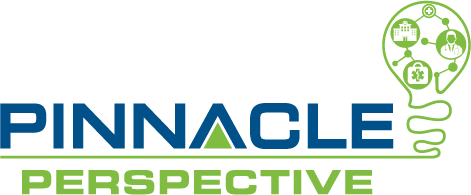
As we all know, until the release of the 2024 Physician Fee Schedule Final Rule on November 2, 2023; SDoH assessments were “voluntary” reporting measures for the Centers for Medicare and Medicaid Services (CMS). That will no longer be the case moving forward to January 1, 2024.
To ultimately define the goals of both Joint Commission and the Centers for Medicare and Medicaid Services, CMS has established a stand-alone code G0136 for the assessment of Social Determinants of Health. CMS goes on to define SDoH into broad categories of assessment(s) including: economic stability, access to education along with quality of the education, environment, and social community context. The factors now include how long it takes for patients to receive much needed assistance with food and nutrition or even transportation requirements.
The new Healthcare Common Procedure Coding System (HCPCS) is updated annually by CMS and is a collection of standardized codes that represent medical procedures and supplies utilized on those procedures, along with products and services. In the final 2024 update, G0136 will be a hot topic button for everyone in the healthcare industry.
HCPCS defines G0136 as, “Administration of a standardized, evidence-based Social Determinants of Health Risk Assessment, 5-15 minutes, not more often than every six months.” The assessment must relate to the patient’s social risk factors that could (or do) influence the diagnosis and treatment of underlying medical conditions.
Along with defining the new HCPCS code, CMS also provided numerous guidelines on billing for the service. The assessment can be completed on the day of an Evaluation and Management (E/M) service; however, cannot be billed with 99211. CMS noted that the assessment is not a screening tool and therefore should not be completed prior to the patient’s arrival. They also note that the assessment should be utilized when the provider believes the patient has an unmet Social Determination of Health that could possibly interfere with the diagnosis and treatment of underlying conditions. CMS will also allow the reimbursement of G0136 during psychiatric diagnostic evaluations on the same date of service. The Current Procedural Terminology (CPT®) codes allowed would be under the Behavior Assessment and Intervention Codes (96156, 96158, 96159, 96164, 96165, 96167, and 96168). CMS has not yet finalized the requirement that the assessment must be completed on the same day as one of the Behavioral Assessment or Intervention visits. CMS will not allow the assessment to be completed through a “portal” as it is again, not a screening tool. This must be performed as an assessment based on the provider’s evaluation of the patient’s current status.
G0136 will be allowed with discharge visits from the hospital (inpatient or observation); however, CMS does expect for patients with unmet needs, there will be a follow-up visits (either as an outpatient or transitional care management plan) to meet the needs documented within the assessment. G0136 will be subject to cost-sharing (meaning there will be a co-payment and / or deductible required) unless the assessment is performed at an Annual Wellness Visit (AWV).
In 2024, CMS will allow Social Determinants of Health assessments at the time of an initial or subsequent wellness visit. Unfortunately, the final rule did not mention the “Welcome to Medicare” visits so, we are to follow that G0136 may not be performed on the day of this service. If the assessment is performed on the day of an Annual Wellness Visit (AWV), Medicare will pay 100% of the allowable fee-schedule, with no beneficiary cost-sharing requirements.
Although confusing, the Final Rule defines this service and other possible assessment instrumentation that may be utilized to capture Social Determinations of Health. As with any new assignable code, there are a few guidelines that are associated:
- Administration of a standardized, evidence based SDoH risk assessment tool that has been tested and validated through research, and includes the domains of food insecurity, housing insecurity, transportation needs, and utility difficulties.
- Billing practitioners may choose to assess for additional domains beyond those listed above if there are other prevalent or culturally salient social determinants in the community being treated by the practitioner.
- Possible evidence-based tools include the CMS Accountable Health Communities (AHC) tool, the Protocol for Responding to and Assessing Patients’ Assets, Risks and Experiences (PRAPARE) tool, and instruments identified for Medicare Advantage Special Needs Population Health Risk Assessment.
CMS requires that the needs identified in the assessment tool be documented in the medical record. The documentation must support applicable “Z-Code” reporting to improve data collection. All Z-Code categories (Z55-Z65) should be assigned as many times as documented by the provider during the assessment(s) completed.
CMS will not require those reporting G0136 to have the ability to furnish services such as Community Health Integration (CHI), Principal Illness Navigation (PIN), or other care management services. CMS will, however, require a provider, at minimum, refer the patient to any relevant resources and consider the results of the assessment performed in meeting medical decision making, diagnosis, or treatment plan for the encounter.
It is important to remember that reporting of Social Determinants of Health was voluntary in calendar year 2023 but, will now be mandatory beginning January 1, 2024. The Joint Commission recently released six elements of performance in their attempt to assist CMS in the capture of SDoH assessments. The assessment elements should have a framework to collect data and, at minimum, contain the following elements: Leadership, Assessment, Identification, Intervention Development, Evaluation, and Communication. This will ensure that everyone participating in the patient’s care will have direction of not only assessing the patient for SDoH needs, but also providing continuous data collection, intervention, evaluation, and communication regarding those needs.
It seemed the inpatient hospital would escape the mandatory requirement of SDoH capture, until CMS released the Final Rule for CY 2024. Reporting will now be a requirement for all inpatient admissions with a submission deadline of May 15, 2025. CMS requires the screening and assessment of 5 specified SDoH domains for patients admitted in 2024: Food Insecurity, Interpersonal Safety, and Housing Insecurity. There are two additional (optional) domains which include Transportation Insecurity along with Utilities which could serve as a larger driver of financial insecurities. With this initiative, it will be crucial to take a unified approach across all areas of healthcare settings including, but not limited to, ambulatory services, emergency departments, inpatient, and home health services. CMS will also introduce two (2) inpatient quality reporting measures for Social Determinants of Health in 2024:
- Screening for Social Determinants of Health – Measuring the number of patients who were screened for the five domains of SDoH for 2024.
- Identification – Data mining of the patients who screened positive for any of the five domains of SDoH from assessments.
It is also crucial to remember that CMS released the 2024 Inpatient Prospective Payment System (IPPS) on August 2, 2023. Outlined within the final rule was the CMS change based on higher average resource costs of cases when certain codes were reported in comparison to similar cases without those assigned codes. CMS has changed “Homelessness” from the severity designation of “non-complication or comorbidity” (Non-CC) to a “Complication or Comorbidity” (CC). The diagnosis codes include:
- Z59.00- Homeless, unspecified
- Z59.01- Sheltered homelessness
- Z59.02- Unsheltered homelessness
CMS noted that the increase in operating payment rates “is a continuation of rewarding hospitals that deliver high-quality care to underserved populations and, for the first time, also recognizing the higher costs that hospitals incur when treating people experiencing homelessness.”
Keeping up with the rapidly changing roles of all healthcare organizations for Social Determinants of Health capture can be exhausting. PERCS is here to assist you in navigating the guidelines, assessment requirements, and tools to remain compliant. If you have any questions or need assistance, please contact Amy Pritchett, CCS, CRC, CPA-RA,CPC, CPMA, CPCO, CDEI, CDEO, CDEC, CANPC, CASCC, CMPM, Senior Manager, HCC Coding/Audit & Education Services at APritchett@AskPHC.com. She will be readily available to answer all questions and provide expert advice, so you are ready to go on day one!
References: https://public-inspection.federalregister.gov/2023-24184.pdf
